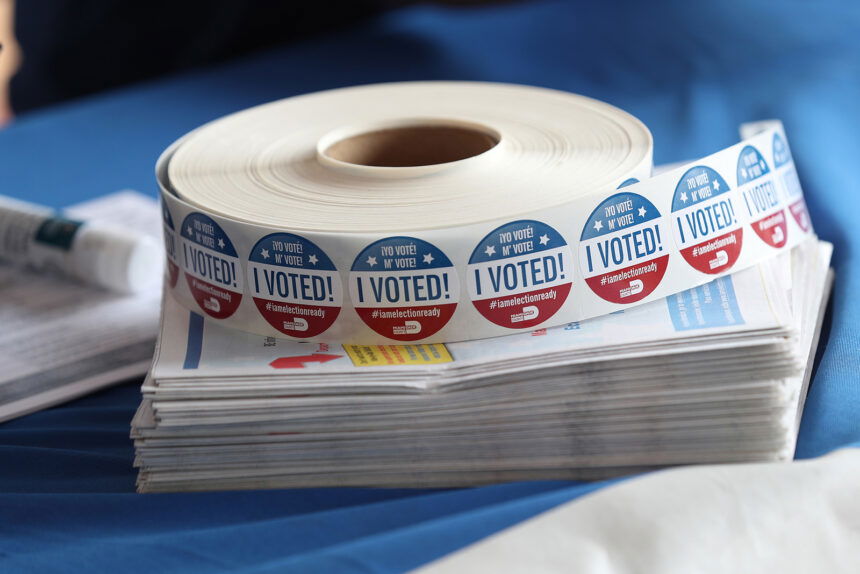More than 5 million people with felony convictions can’t vote in this year’s election, advocacy group finds

(CNN) An estimated 5.1 million people across the US won't be able to vote in the 2020 election due to a felony conviction, a new study from the Sentencing Project found.
That's about 1 out of 44 adults who are barred from voting because of a current or previous felony conviction. And that comes even as half of US states have in the past 25 years moved to change their laws and policies to expand voting rights, the project said.
"The bedrock of any democracy is the right to vote," the project's executive director, Amy Fettig, said in a statement. "Laws that exclude people from voting have destabilized communities and families in America for decades by denying them a voice in determining their futures."
Felon disenfranchisement varies drastically by state. In Maine, Vermont and the District of Columbia, people with felony convictions don't lose the right to vote, even while they're behind bars, according to the National Conference of State Legislatures.
Other states restore felons' rights after incarceration or after parole or probation, following an incarceration. In some states, people with felony convictions can lose their voting rights indefinitely for some crimes, according to the NCSL.
The Sentencing Project study found that about three quarters of people who are barred from voting are living in their communities, having either fully completed their sentences or remaining on probation or parole.
And who is allowed to cast their ballot has a lot to do with the people who end up in power.
"It's clear that disparities in the criminal justice system are linked to disparities in political representation," the project said.
The Sentencing Project is a non-profit organization that produces research to promote reforms in sentencing policy, address unjust racial disparities and practices, and to advocate for alternatives to incarceration.
What those populations look like
According to the project:
About 1 in 16 African American adults are disenfranchised. The rate is about 3.7 times higher than that of non-African American people of voting age.
African American disenfranchisement rates also vary by state according to the project.
"In seven states -- Alabama, Florida, Kentucky, Mississippi, Tennessee, Virginia, and Wyoming -- more than one in seven African Americans is disenfranchised, twice the national average for African Americans," it said.
More than 560,000 Latinx Americans are barred from voting. That's a conservative estimate, the project says, because ethnicities in prison populations are unevenly reported. At least 34 states disenfranchise Latinx adults more than the general population, the project said.
About 1.2 million womenare disenfranchised, the project said.
More people barred in Southern states
Felony disenfranchisement rates are highest in Southern states, where voting restrictions that aimed to limit the political power of Black men were passed during the Jim Crow era, the project said.
In Alabama, Mississippi and Tennessee, 1 out of every 13 people -- more than 8% of the adult population -- is disenfranchised, it said.
In Florida, more than 1.1 million people are barred from voting. The state remains the "nation's disenfranchisement leader in absolute numbers," the project said.
A November 2018 constitutional amendment passed by Florida voters allowed most people who completed "all terms of sentence" to vote, with some exceptions.
But the state remains in a legal battle over a law passed by Republican lawmakers that required residents with felony convictions to pay off all their debts to courts before having their voting rights restored. Activists have requiring felons to pay off their debts before their civil rights are restored is like imposing a tax on voting.
A federal judge ruled earlier this year that the state's "pay-to-vote system" was unconstitutional."
But the 11th US Circuit Court of Appeals reversed that ruling last month. The law, Chief Judge William Pryor wrote in the majority opinion, doesn't constitute a poll tax.
Instead, he wrote that "it promotes full rehabilitation of returning citizens and ensures full satisfaction of the punishment imposed for the crimes by which felons forfeited the right to vote."